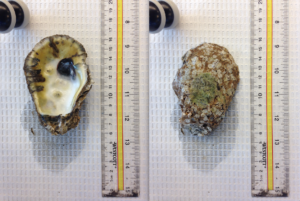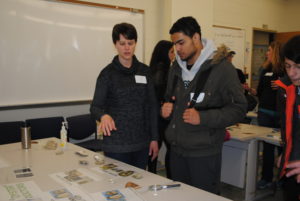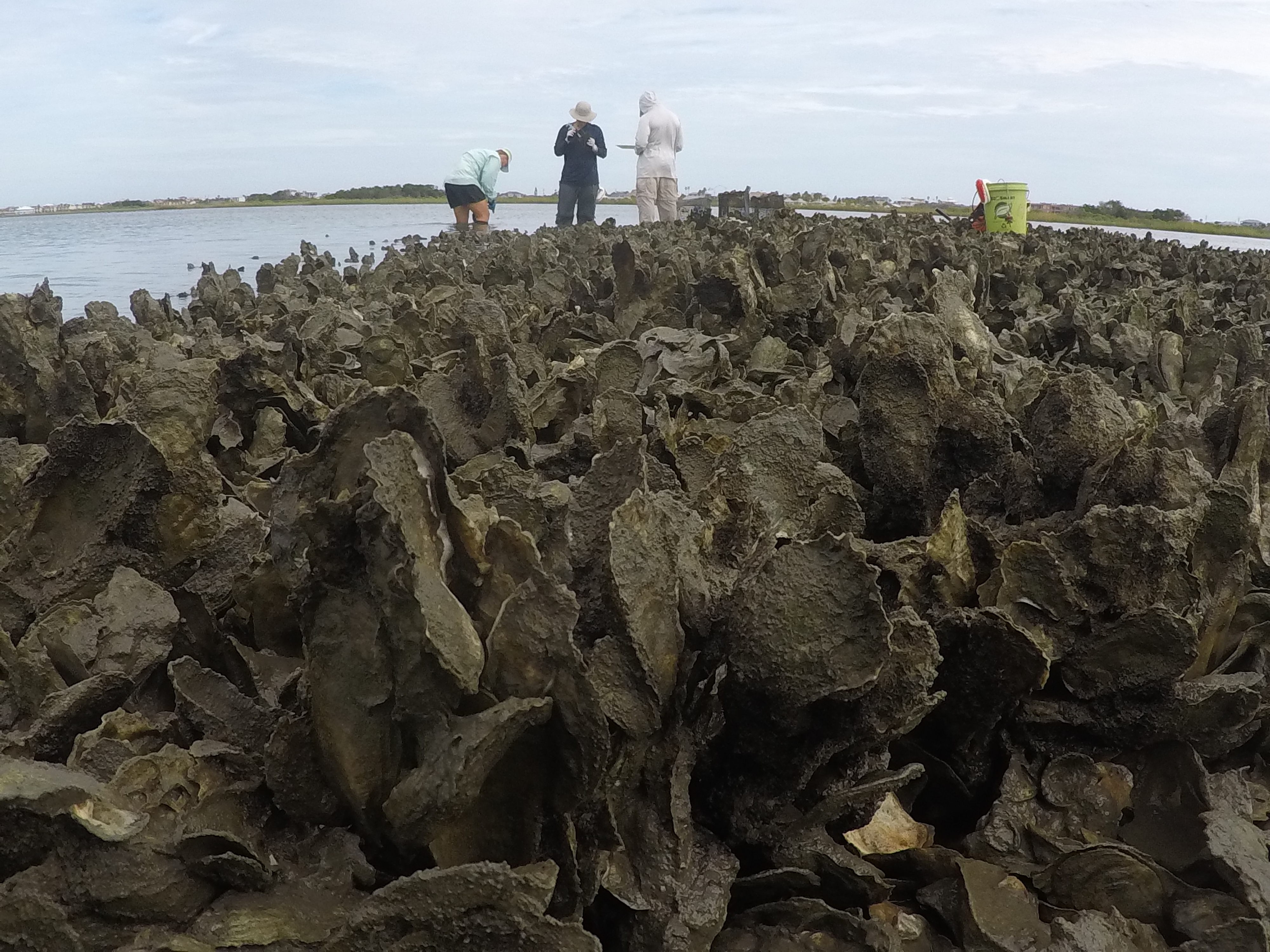
Oysters are victim to multiple parasites, including the blister worms (left) and boring sponge (right) pictured here.
As oyster populations decline globally, it’s important to understand how parasites may affect these ecologically important and economically valuable species. It’s common to study the effects of one parasite on one host, yet it’s rare to find a host infected with only a single parasite. To learn more about these multiple-parasite systems, MSC Associate Research Scientist Torrie Hanley and a team of colleagues including Assistant Professor David Kimbro, looked at patterns of parasite species diversity across oyster reefs in the Gulf of Mexico, a region that has experienced dramatic decreases in oyster populations, with devastating impacts on the oyster fishery. The study was recently published in the journal Marine Ecology Progress Series. Hanley and colleagues found that almost 70% of oysters were infected with multiple parasites. In addition, the prevalence of each parasite species was impacted by a variety of different environmental factors, such as salinity, tidal height and biotic factors such as host density and size. This study highlights that predicting disease outbreaks and long-term health of oyster populations requires consideration of many factors, including the combined effects of multiple parasites.

Associate Professor Randall Hughes explains oyster parasites to a student for the “Oyster Doctors” activity at the High School Marine Science Symposium.
In addition to contributing to oyster research and management, this work has inspired the researchers to develop an outreach activity called “Oyster Doctors” in which they challenge participants to diagnose the shells of oysters that had been infected with parasites while alive. Informing the public about threats to our natural resources is essential, and Hanley and her team set a great example for colleagues about the importance of incorporating science communication into one’s research program.

